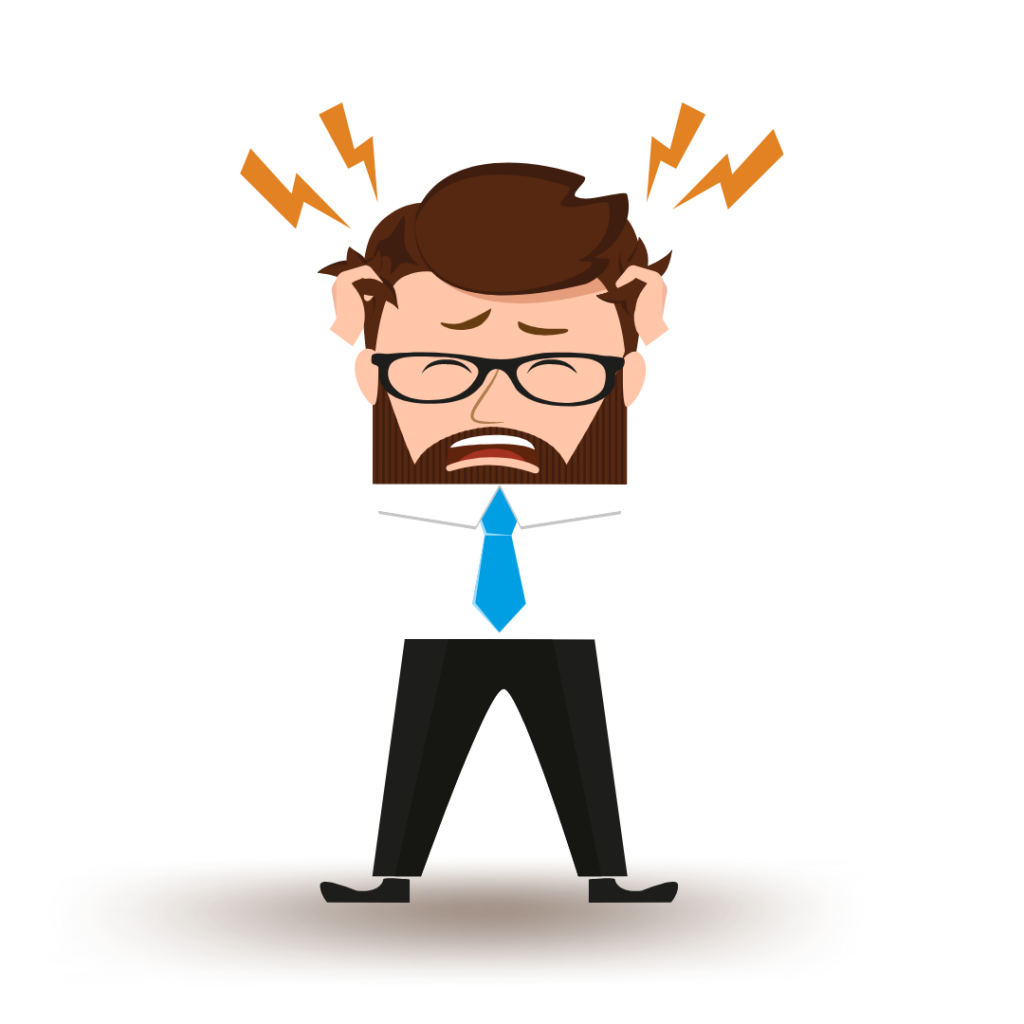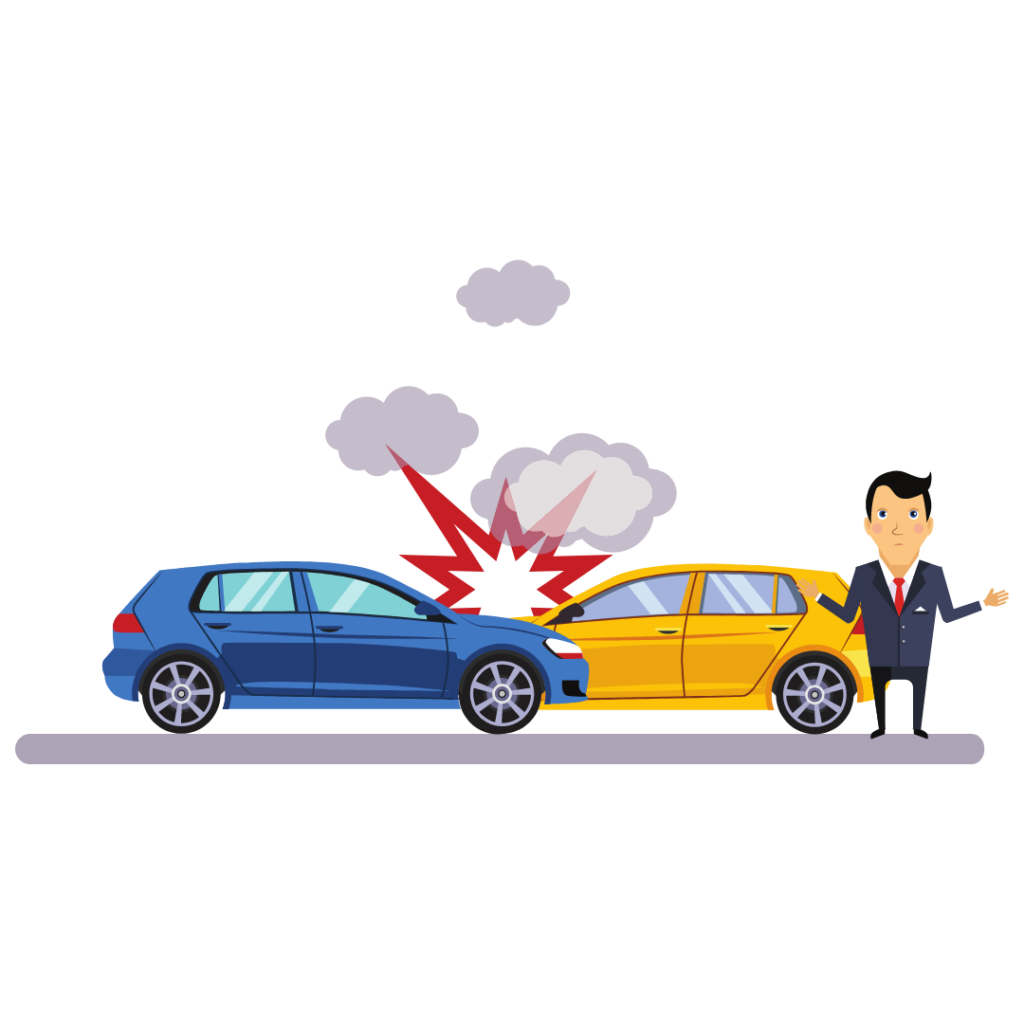Every year, thousands of drivers in the U.S. suffer from brain injuries and concussions as a result of car accidents. Unfortunately, not all of them are diagnosed and treated by medical doctors, leaving victims with long term effects.
A traumatic brain injury (TBI) occurs when a car accident results in sudden trauma which causes damage to the brain. During a car accident, TBI can happen when the head hits an object or some part of the car, or when the head suffers a direct hit.
If you have been in a car accident and experienced a direct hit to the head, your doctor is very likely to check for TBI. Different from TBI, concussions are not always detected because a concussion can occur without a direct hit to the head.
A concussion, which is common in car accidents, is a form of brain injury. It involves a short loss of normal brain function following a hit to the head or the body, causing the head and brain to move rapidly back and forth. Although concussions are not typically life-threatening, they can be serious and when not diagnosed and treated can cause lasting medical implications even many years after the concussion.
In my experience as a personal injury attorney, doctors often fail to check the possibility of a concussion when there is no evidence of the head suffering a direct hit.
If you know the symptoms and treatments for TBI and concussions, and have been hit on the head or the body as a result of a car accident, you will have a better chance of detecting it and getting the appropriate treatment.
If you suspect TBI or a concussion, it is important that you have a full evaluation by an emergency room doctor, neurologist, or specialist to determine the best course of action. It is also important to know that the symptoms of a concussion may not start immediately. They can occur days, weeks, and even months after initial impact.
Concussions
Symptoms of Concussion:
- Headache or neck pain
- Nausea
- Ringing in the ears
- Dizziness or fatigue
- Feeling dazed or “out of it” and not yourself
More Severe Symptoms:
These are more severe symptoms of a concussion that require immediate medical attention include:
- Convulsions or seizures
- Drowsiness or inability to wake up
- A headache that gets worse and doesn’t go away
- Weakness, numbness or decreased coordination
- Repeated vomiting or nausea
- Confusion
- Slurred speech
- Loss of consciousness
Concussion: Diagnosis and Treatment:
Following a car accident where you have experienced a hit to the head or the body, it is important to request an examination to check for a concussion.
A physical exam by a doctor, diagnosing a concussion may involve a neurological exam to check vision, balance, coordination and reflexes. A qualified doctor may also evaluate your memory and thinking capabilities, and may perform a CT Scan or MRI. These tests are done to help identify signs of bleeding, inflammation or skull fracture.
Most people recover from a concussion, however detection and proper treatment will help recovery. Recovering can take time and rest during the recovery period is very important to allow the brain to heal. Limiting physical activities and activity that requires concentration may also be advised as these can trigger headaches or other concussion symptoms.
If you have been involved in a car accident and have suffered a hit to the body or head, contact Horn Law to ensure you receive the appropriate examination, treatment, and compensation.
Traumatic Brain Injury
TBI Symptoms:
- Headache
- Confusion
- Lightheadedness, dizziness
- Blurred vision or tired eyes
- Ringing in the ears
- Fatigue or lethargy
- Changes in sleep
- Behavioral or mood changes
- Problems with memory, focus, attention or thinking
TBI: Diagnosis and Treatment:
If you have been involved in a car accident and suspect TBI, you will require immediate medical attention.
If you are diagnosed with brain damage the doctors’ primary goal will be to stabilize your condition, ensure proper oxygen flow to the brain and the rest of the body, control blood pressure and prevent further injury.
Some TBI patients who have suffered severe trauma may require surgery, but this is only in severe cases.
For moderate TBI, imaging is done via CT scan or blood tests.
Rehabilitation
If you have been diagnosed with TBI or concussion, physical therapy, occupational therapy, speech/language therapy, and social support are some of the treatment programs and rehabilitation services that may be needed for moderate to severely injured patients.
Car accidents are the second leading cause of TBIs and concussions, making up 17.3%. Falls and sports injuries are also a common source of head injuries. TBIs and concussions are usually caused by a violent blow or jolt to your head or body, which is very common during a car accident.
About Doug Horn
Douglas R. Horn is the Lead Attorney of The Horn Law Firm, P.C. where he exclusively represents persons who are injured in accidents, including cases arising from motor vehicle collisions, work & industrial accidents, and dangerous conditions.
Since 1991, Horn has compiled a track record of success in obtaining maximum recovery for his clients, concentrating in cases involving neck, back, and spinal injuries, head/brain trauma, fractures, injuries requiring extended medical care, and catastrophic injury.
As Horn’s law practice has increasingly focused on motor vehicle accident law and crash litigation, he also dedicates a significant amount of his work to the advancement of driver safety, particularly in the area of teen driver protection.
In addition to his law practice, Horn frequently presents on personal injury law to national attorney audiences, including strategies to maximize legal recovery for traumatic brain injury, neck, back, and spinal injury, orthopedic injury, and complex/catastrophic injury.







